Whereas Chris Poelen normally harvests his first pumpkins at the beginning of August, this year he only came to market at the end of August. "Planting still went reasonably according to plan, but then growth stalled for about six weeks due to the cold and wet weather, so we also had to postpone sowing for about three weeks," he says.
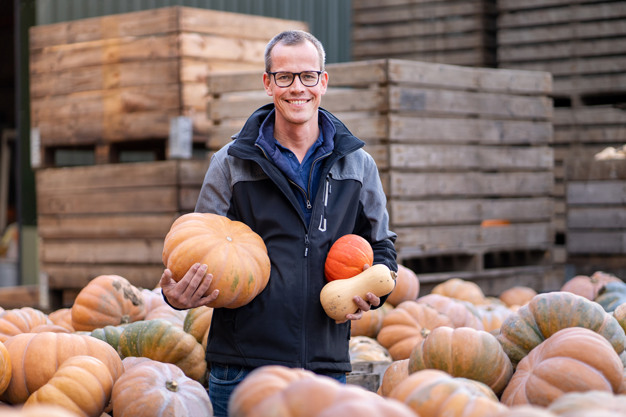
"As a result, everything shifts up except Halloween, which is always an important sales peak anyway. That means more will have to be done in a shorter time," observes the grower, soberly. Poelen grows some 15 edible pumpkin varieties, of which the Hokkaido, bottle pumpkins, green Kabocha and Muscat squash account for the largest share.
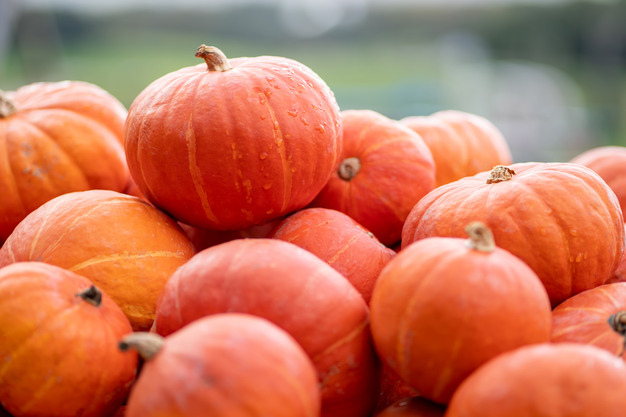
"This season, it took some time for the fruits to ripen properly. This created some gaps in the market, but we are getting those filled in by now," Chris says. Groentenhof Poelen supplies the pumpkins to numerous sales channels, such as exporters, wholesalers, supermarkets and carvers. "In particular, the demand from cutting plants is increasing. Consumers want more convenience, which is becoming a hot topic."
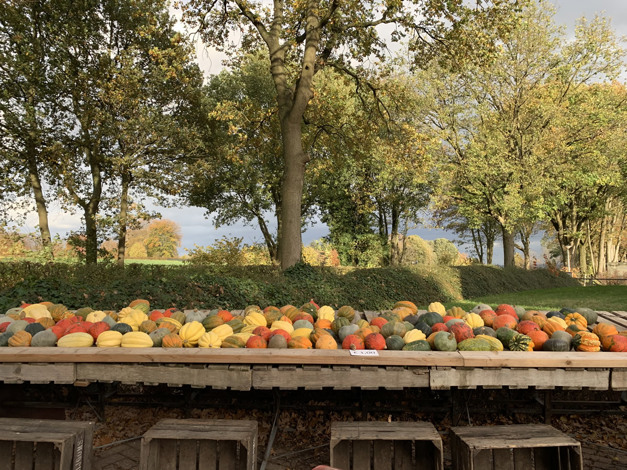
Overall, Chris says the popularity of pumpkins is no longer increasing as much as in recent years. "On top of that, the cards in the Dutch market are pretty much dealt by now. That also applies to us, with many relationships we have a fruitful long-term cooperation. Only when calamities occur elsewhere, you can sometimes see the demand increase significantly."

According to Chris, however, an important trend is that the Dutch market increasingly prefers Dutch product. "The CO2 footprint counts heavily. Hopefully we can contribute to that with our local pumpkins. Our season traditionally lasts until the end of the year. That's also when more imports come in and we start focusing on the new growing season again."
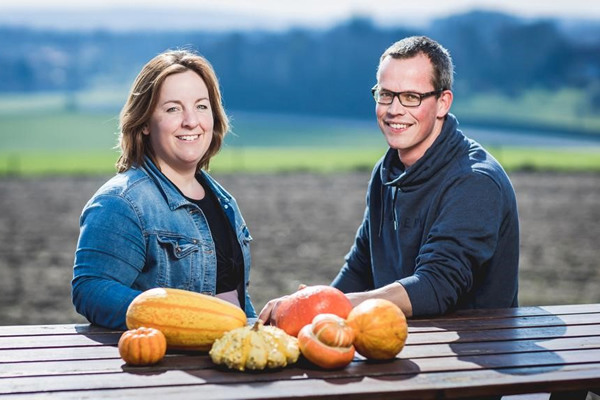
This year, the Groesbeek-based grower expanded his acreage slightly, but due to weather conditions he has about the same volume available. "This fortunately allows me to serve all customers. I don't like to say no," Chris continues. According to him, market demand is increasingly moving towards the more manageable sizes. "Families are not that big anymore and shelf space is also more likely to get smaller. As a result, the smaller sizes are most in demand."
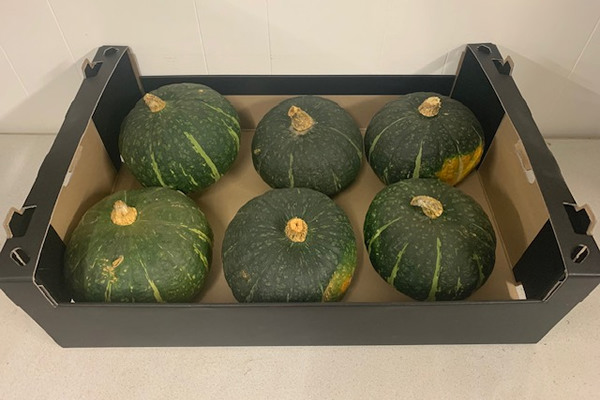
The latter is no mean feat, by the way. "It is best to have warm and dry weather, because then you can still steer a bit with the reel. With this spring's wetness, this is a lot more difficult, as you actually need good weather, especially around pollination. Fortunately, the good weather of the last few weeks has ensured good ripening and quality."

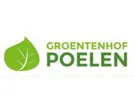 For more information:
For more information:
Chris Poelen
Groentenhof Poelen
Third lane 12
6561 KH Groesbeek
+31 (0)6 273 37 133
info@groentenhofpoelen.nl
www.groentenhofpoelen.nl
